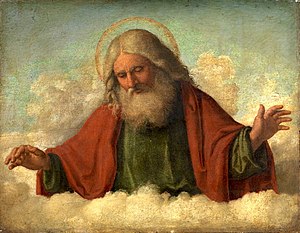LOVELY VISTAS - AWKWARD REALITIES
Been to Bali, or better still - who hasn't? How about Lombok next door - surely just as laid-back and temple-full, maybe less swamped by tourists hounded by hustlers?
Lombok has a snippet smaller population - under four million against Bali’s just over.
Although the native Sasaks are related to the Balinese and share a language, most are monotheist Muslims while their western neighbours mainly follow Hinduism and worship many deities.
Another separation is geographic and deep. A line was drawn through the 60 km long Lombok Strait (average depth 250 metres) in 1859 by the British naturalist and early environmentalist Alfred Russel Wallace.
It marks the boundary between Asiatic species of plants and animals to the west. Going east Australian organisms start to dominate.
It would be trite to suggest this is why Australian education consultant Dr Mark Heyward and his Javanese wife Laras chose to settle here rather than join the thousands of ‘golden visa’ expats on Bali.
Small islands can offer a sense of place that’s limited, physically containable, spiritually even.
Heyward was born and raised in Tasmania, so here's the lure of small island life, salt water as the barrier everywhere and separation from the centre that leads to the development of difference.
He’s worked on aid projects across the archipelago for 30 years, learning Indonesian (language and culture) and converting to Islam.
His earlier adventures in the jungles of Kalimantan (Borneo Island) became Crazy Little Heaven an attempt ‘to explore and help explain – at least to himself - the Archipelago’s multi-layered complexities. At the same time, his venture became an interior search for direction.’
Ten years later he’s found his spot more than a thousand klicks south of his previous posting. On a hill in Lombok, he and Laras have been building a house and making it a home.
He’s also wrapping up an eight-year Australian programme that seems to have some good scores.
Even with these qualifications, Heyward’s ambitions still hit hassles that could not have been foreseen. Shortly after moving to Lombok, manufactured conflict with the Christian minority flared.
That’s more than a metaphor - thugs tried to fire his school and families fled. The violence fizzled out after three days but the tension remained. With this prelude, only risk-takers would play on.
They did and the bonus is The Glass Islands published by Monsoon Books, UK. The title reflects the placid seascapes seen from his block, arousing childhood imaginations of a stranded Robinson Crusoe.
The couple approached their Defoe dream warily, consulting neighbours, friends and local authorities of which there are many. Unlike their Down Under equivalents they don’t demand town planners’ blueprints and geologists’ soil samples, but they do want traditions followed.
The cultural and spiritual rules can’t be found in government regulations, only from those who claim to know the rituals and can decide the orientation and soothe the spirits with an envelope of rupiah.
Fortunately, the builders were alert to hazards - shonky land certificates, kickbacks to suppliers, vanishing contractors, corrupt cops - no list needed, just an expectation of exploitation and a suite of countermeasures.
Heyward is no ‘lovely people’ softie: ‘It’s not so much that everyone is a crook,’ he informs his resigned wife about her nation, ‘it’s that the whole system is dodgy.’ This is a theme from his earlier writing, a sign he may have adapted but he hasn’t accepted.
Few Westerners can - we’ve been raised to expect cars to stop at zebra crossings, not smoke in restaurants, call cops when we see crimes, do the right thing. Others do life differently. Personal values can get clobbered, but some principles must remain rocks.
The Heywards have children and go through some messy medical events. Local doctors preferred Caesareans while the couple wanted natural births - and won - difficult in a society that gives men in white jackets the status of seers. Such intimacies help readers bond with the writer.
In Yogyakarta, they bought a traditional timber joglo house, had it knocked down and sent to Lombok. It starts rising six years after their son Harry’s birth. Fifty workers were on the job. That takes exceptional management skills.
But The Glass Islands isn’t a book about DIY home building. It’s the structure for the author’s observations on the surrounds. He strolls the site with a tape but he’s really measuring his growth across the landscape of life.
Heyward makes a frustrating companion for those who think the destination is the purpose. He’s forever darting off the track, noting, and reflecting though usually to the reader’s advantage.
He’s articulate, observant and seeks to share, a better way to communicate than telling. Sadly no photos. A website of pix would bolster the book.
There are throwaways of cultural curios like ghostbusters, illiterate families who can't access welfare, no autopsies so causes of death go unknown, and occasional serves of political history, much of it gruesome. Annoyingly absent are references to help the inquisitive go deeper.
Heyward calls himself naive and reckons it’s a virtue. It’s a personal put-down, typically Okker. he’s a pragmatist, an essential attitude for all outsiders in Indonesia.
Despite all his years in the Republic, his marriage, language skills and conversion to Islam, he’ll always be a foreigner. Hopefully, Laras doesn't feel that way in Australia.
His Rhodes Scholar late father Oliver was an Anglican bishop but accepted his son's conversion to 'this harsh, dry desert religion … where the call to prayer is at once familiar and foreign, comforting and unsettling. It is an invitation to surrender.'
This is how readers may want to approach this multi-issue book, as a wander with a wonderer - to pause, ponder and marvel at whatever life reveals. And in Indonesia, that’s plenty.
##





No comments:
Post a Comment